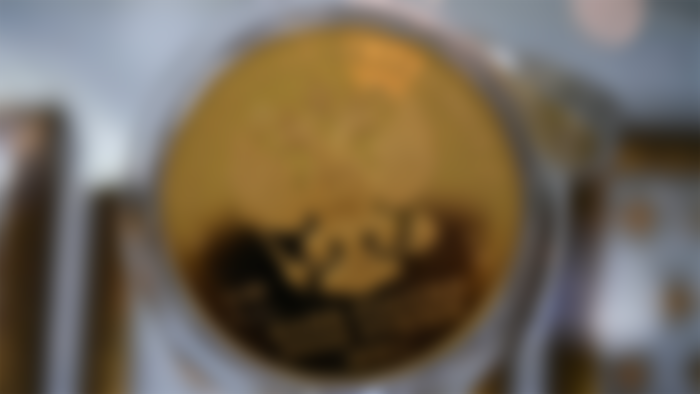Putin's invasion of Ukraine is turning the Russian economy into a a bubble ready to burst

When the west first imposed sanctions on Russia in the aftermath of Putin's invasion, many analysts thought that Russia's economy would crumble. That's because the sanctions were unprecedented in both scope and magnitude, and originally they did seem to have the desired effect. However, over the last few weeks or so the ruble has continued its recovery, hitting a two-year high against the dollar on Thursday. So in this article we're taking yet another look at Russia's economy. Whether it's really recovered and what might happen in the future.
As I've detailed in previous articles, the Russian economy has so far fared surprisingly well, at least in certain respects. The most conspicuous improvement has been the ruble, Russia's currency. When sanctions first kicked off in early March, the ruble collapsed by 60 percent to an all-time low of 140 rubles to the dollar. However over the last few weeks or so the ruble was slowly but steadily recovered and on Wednesday it hit a two-year high of 64 rubles to the dollar and by this data the ruble is the best performing currency of 2022 and one of just three currencies to actually appreciate against the dollar. The others being the Brazilian real and the Mexican peso, so how did this happen?

USD/RUB graph, XE
Well, it's for a few reasons, but most obviously Russia engaged in some pretty interventionist policies to increase demand for the ruble. For example, they told exporters to convert their foreign currency into rubles they also doubled interest rates and limited capital flows. Russia also spent a massive 50 billion dollars worth of reserves on propping up the ruble, which just isn't a sustainable policy long term, but it's not just Wiley monetary policy which has helped the ruble. While the sanctions were unprecedented they weren't total, various Russian banks were excluded from swift sanctions which allowed them to act as intermediaries between other Russian banks and the rest of the financial system and so far sanctions have excluded Russian energy exports the bedrock of Russia's economy. In fact, since the invasion, Russia has exported an estimated 65 billion dollars worth of fossil fuel products and revenue from hydrocarbons are up 80 percent year-on-year.
It's also worth mentioning that since 2014 Putin has been sanction proofing the Russian economy, making sure that it's not overly dependent on essential imports or sanctionable exports. The ruble's recovery might also have something to do with plans recently announced by the secretary of the Russian Federation security council. With him announcing that Russia was working on a project which would lead Russia to back the ruble with gold and other commodities and if they did, this wouldn't be a complete surprise. In March, Russia's central bank announced that they'd be buying gold for 5,000 rubles per ounce from commercial Russian banks, with Russia claiming that this was to help the banks with their liquidity problems. However, some analysts interpreted this as a preliminary step in tying the value of the ruble to gold and this will probably appeal to investors, especially those who are worried that other fiat currencies like the dollar and euro which aren't tied to any commodity could be more vulnerable to central bank induced devaluations.

Anyway, the rise of the ruble has allowed Russia's central bank to reduce interest rates from 19 percent to 14 percent and so-called real-time indicators of Russian economic activity are looking good. With energy consumption only falling slightly and data suggesting that Russian consumer demand is still strong, both of which are good indicators that the economy isn't struggling all that badly. So does that mean that sanctions have failed and that the Russian economy is back on its feet, well no, not really. For starters, this all relies on some pretty costly interventions, Russia is still requiring the exporters to convert their foreign currency into rubles and has been spending reserves at a frankly unsustainable rate. This is part of the reason why Russia's defaulted on some of its offshore debts. It's also worth mentioning that the unofficial rate is about 10 to 15 percent lower than other data suggests and that while the plan to back the ruble with gold and other commodities might improve that rate, it's difficult to maintain for a whole load of economic reasons.
Furthermore, it also looks like the EU is getting increasingly serious about energy sanctions, which just doesn't bode well for Putin. But perhaps the main thing to remember is that the ruble isn't the same as the Russian economy, essentially because Russia isn't particularly dependent on imports. Despite the ruble's improvement, then most forecasts expect Russia to suffer a significant recession in the next year or so. The IMF still predicts 20 percent inflation and an 8.5 percent drop in Russian GDP this year. While the World Bank expects an even larger contraction of 11.2 percent, and even Russia's own central bank recently said that the Russian economy's relatively good performance over the last few weeks was only achieved by unsustainable reliance on reserves. And that they expect economic chaos to only really kick off in the third quarter of this year. In some sense, then, the immediate collapse of the ruble at the start of the war set unrealistic expectations. It made it look like sanctions were immediately effective, when in fact sanctions usually take a few months if not years to affect a national economy.

Just look at Iran as a good example, the UN first imposed sanctions on Iran in 2006 and energy related sanctions were first introduced by the US in 2010, but Iran's GDP per capita grew steadily until 2013. The point we're trying to make is that sanctions are rarely immediately effective, and in some sense this is unsurprising. After all, Russia is a massive economy with an impressive domestic industrial base, so an immediate and sudden crash was always unlikely. All in all then sanctions haven't been as effective as some in the west might have like, the ruble has recovered and Putin clearly still has enough resources to continue his war effort. Nonetheless, this doesn't mean that they failed or that the Russian economy is booming a deep recession is still likely and the medium-term outlook for the Russian economy doesn't look great.



